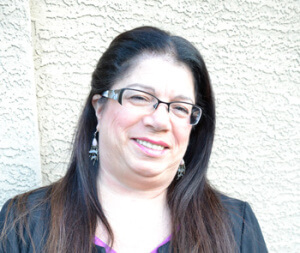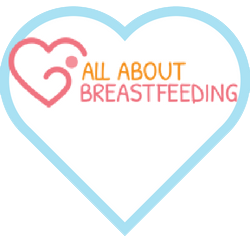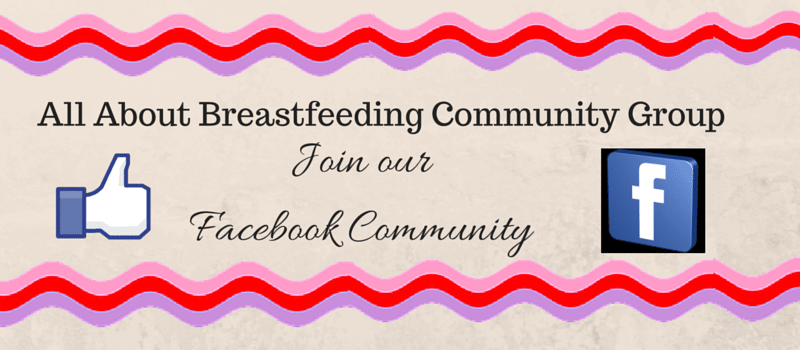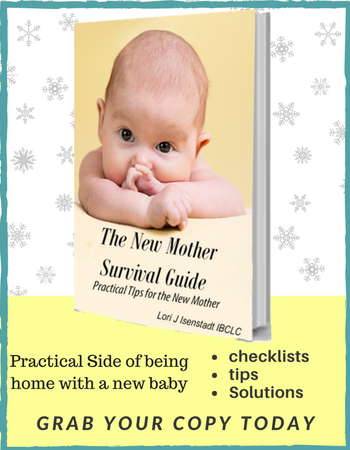Episode 375
Breastfeeding is a natural thing to do, but that does not mean because you have just given birth, that breastfeeding automatically comes naturally. As a matter of fact, a majority of new mothers say it takes them quite a while until they feel comfortable with breastfeeding. As an IBCLC, I know this to be true. Last year, I was presenting at a lactation conference and I wanted to be sure that what I observe in my private practice is what is common in the general public. So, I decided to take a poll with the moms who are active members in my breastfeeding mothers group. Here is what I asked them:
How many weeks do you feel it took until you felt breastfeeding was going well, it was easy and it was convenient? I gave the the choice of:
2 weeks – 8
4 weeks – 13
6 weeks – 4
8 weeks – 7
3 months – 29
longer than 4 months – 6I had 67 moms responded in a relatively short period of time. None of the responses surprised me, not even one bit.
Let’s see if you can guess. Take out a piece of paper and write down how many of the 67 moms said it took 2 weeks? how many 4 weeks? 6 weeks? 8 weeks? 3 months? longer than 4 months?
What would you say if I told you that almost half of the mothers said that it took them 3 months to feel that breastfeeding was going well. It took them 3 months until it felt easy and convenient for them. It took them 3 months until they felt confident with breastfeeding. Here is how it played out in the poll.
2 weeks – 8
4 weeks – 13
6 weeks – 4
8 weeks – 7
3 months – 29
longer than 4 months – 6Now that you know that most moms think it is going to be easier than it actually is & that some don’t even take a class or read a book or watch a video, My very first tips is: Be prepared! Don’t assume your baby will just latch on and things will be gravy from that moment on. Listen to other moms who have come before you. They have said that it takes time for breastfeeding to be comfortable and convenient. It is very unlikely will be a pro at it right away, however, given time, lots of practice and commitment, you will soon be enjoying a wonderful breastfeeding relationship with your baby.
The second and third tip for breastfeeding success is knowing your breastfeeding community resources and using them.
Most breastfeeding moms will tell you that if they had to do it all over again, they would reach out to their community resources, during their pregnancy. We have this notion that we assume breastfeeding will go well and if we do have any issues, we will look for help when needed. Now there are some areas of our lives that this works out nicely for us. Holding off on connecting with breastfeeding resources is definitely not one of them. A very, very, very typical and very, very, very common scenario for newly breastfeeding mothers is to be in the midst of a crisis – your baby is not latching on, your baby is latching on but it is causing you so much pain you just don’t think you can go on, your baby is losing too much weight and you are told to supplement, you are struggling with not enough milk or you are so engorged that it is causing you a tremendous amount of breast pain. Whether it is the weekend, or the middle of the night or during the daytime when you are realizing you need help – does not matter so much. What matters is that it is never good for a frantic mom to be searching all over for help, when she is in the middle of a crisis.
Okay, so now that you are interested in checking out these resources, where do you find them?
There are several places for you to begin your search –
My favorite place to start is to begin a search online:
Search for: breastfeeding mothers groups near me
You may find a group right in your local community. Email the group leader. Find out when they meet. If there is not one during a time that is convenient for you, see if you can be referred to another group that is convenient for you.
La Leche League is a great place to start and they have groups in the US as well as globally
In the UK you can check out – The Breastfeeding Network –
In Australia – you can check out the Australian Breastfeeding Association
Other places
:your physician or midwives office
your pediatric office
Search for a local IBCLC near me – your local lactation consultant may be running groups or refer you to one.
The hospital or birthing center where you plan on having your baby – contact the IBCLC on staff to find out what is happening in your neighborhood.
The second tip was to know your resources and my third tip is to actually use your resources. Find out where and when they meet. Do your best to attend a meeting months before you give birth. I know so many of you may think it is weird or it is useless to attend a breastfeeding group before you have your baby in arms. I am telling you.. it is the best time to go to a group. When you go a few times and get to meet the other moms, you will begin to feel comfortable with the group. The members of the groups will welcome you with open arms. A group of breastfeeding mothers love to be able to help and support you along your breastfeeding journey. Once you have your baby, you will have already had some interactions with group members, know where to go to hang out with other moms and feel comfortable doing so. While these support groups may not be the best choice if you are having breastfeeding challenges such as latch or pain or milk supply, they are my first choice for emotional support. I don’t know that I have ever, ever met a new mother who could not benefit from some social and emotional support from other breastfeeding moms.
Along with checking out your local resources and attending a few groups, my fourth tip is to register for a breastfeeding class.
You may be able to get a referral to a local breastfeeding class from one of the members of the groups that you are attending.
Sometimes your childbirth educator can refer you to a local class.
Since you are new at this, I would like to share some things that you should be looking for when registering for a breastfeeding class:
Look for a class that is being taught by an IBCLC. This is optimal because this will give you an opportunity to get to know your local IBCLC, which will be real helpful once you give birth. Since all classes are not created equal, you want to inquire what the class will cover. I use to think it was best to just teach the very basics of breastfeeding, but I learned a long time ago that this was not enough.I like to teach parents about realistic expectations when it comes to newborn parents and the breastfeeding mother.
Giving you information on the importance of self care for both of you and how to help avoid the extreme fatigue that can happen when you are not prepared for what usually adds up to be 8-10 hours of feeding time alone – every 24 hours. Yes, this is true and I know, it freaks out a lot of parents when I talk about this. However, between feeding and changing a diaper and burping and settling your baby, each feeding time can easily last an hour and since most newborns are feeding at least 8 times a day, this is what you are going to be spending a lot of time doing.
Knowing that breastfeeding is time consuming, really brings home the fact that you want to make sure you take care of as much household stuff as possible before the birth. This is why I spend time on this subject and I give lots of great information on how you can do this. This also clues parents in to the fact that they may want to keep postpartum life and activities to a minimum.
Of course, it is very important that the class cover in detail the basics of breastfeeding, details on what to expect the first 24 hours, the next few days and the first several weeks. I am a big stickler to really encouraging partners to attend class because I believe they need to know everything about breastfeeding that you know. After all, they are going to be the ones in the home with you, helping you. While they are not the ones actually putting baby to the breast, there is much for them to know so that they can fully support you.
Speaking of partners, I find that so often they get lost in the mix here. I like to pay attention to your partner and help to prepare them for what is to come also. They will also be tired, possibly a little to a lot stressed about baby care and perhaps stressed watching you if you are having issues with breastfeeding. They absolutely need to know what to expect and what they can do to help you and themselves. Do you know that postpartum depression is not just something that happens to mothers? There are many documented cases of fathers who suffer from depression after the birth of their baby. And yes, you bet that I cover ppd in my breastfeeding class. Better to be a bit of a Debbie Downer, then to leave you totally defenseless during the postpartum days.
would love for you to check out my online breastfeeding class as an option for you. It is easy, and convenient and geared towards the first time mom as well as moms who have breastfed before and yet did not have the best of experiences. Every single person who takes my class says that they learned so much, even if they breastfed before. They enjoy the huge benefit of being able to work through the class at their own convenience which is incredibly valuable if you are finding it hard to coordinate class times with your partner.
My fifth tip for early breastfeeding success:
I want every breastfeeding mother to know – breastfeeding is not suppose to hurt. I say this often, but if you are new to the show or new to breastfeeding, you may have been given outdated advice – which is usually – expect breastfeeding to hurt the first 6 weeks, but don’t worry, it will get better. I care so much that you know that breastfeeding is not suppose to hurt because if you know this, you will not put up with pain, waiting and hoping for that 6 week mark to come and it magically get better. It is likely that by that time, you will give up. When you know it is not normal to hurt, this will push you to seek help sooner, rather than later, which will increase your likelihood for early breastfeeding success.
My 6th tip is for you to really have a good understanding of what to expect of the breastfeeding mother and baby for the first 24 hours, then the second and third day. The first day is very different than the 3rd day and the 2nd and 3rd day and night is very different than the first night. Babies tend to be sleepier the first 24 hours and gradually become more wakeful. I find that lots of parents assume that their baby will be breastfeeding every 2 hours the first day. While this may happen to you, it is actually quite the opposite for many newborns. If you learned that this is how it should go, then you are waking your baby up for these frequent feedings and if your baby is not interested, you will likely have a poor and frustrating feeding session which may put a damper on your mood and affect your confidence level. Why do I single out the first 24 hours and the first few days? Because this is a very popular time period for which, new and vulnerable mothers, well, if it does not go the way you planned, can really have a negative affect on your emotions. Most classes do not cover one of my most popular topics that definitely leads to breastfeeding success:
The topic is:
What if things don’t go as planned and your baby is not able to or just won’t breastfeed? If noone talks to you about a Plan B, you are left with no tools in your toolbox, because no one enlightened you about the circumstances that can happen to cause you to have early breastfeeding difficulties. If you don’t know what else to do and start bottle feeding, you may lose your confidence that breastfeeding can actually happen. If you did not connect and use your resources before giving birth – You are stuck in crisis mode. I don’t let this happen to you. I make sure to have you covered with a plan if breastfeeding is not going so well. Preparation and Prevention are key components to breastfeeding success.
Now for the 7th and last tip for early breastfeeding success:
Learn the dance of latching a baby on.
Optimally, your baby will have the opportunity to be placed on your chest and do the whole breast crawl thing and with just a little help on your part, find their way to your breast, bobble their head around and latch on well. Babies do have the instinct to find the breast and suckle. It is actually quite amazing to watch your little one find their own way. Together, this may be a bit awkward in the beginning, but you will soon become pros at this whole breastfeeding thing. Learning how to breastfeed can sometimes be like learning how to dance with a partner. For some, there is very little effort that goes into it…. just confidence that you can do it and some additional physical or emotional support.
For some moms and babies, for various reasons, there is more work that goes into the art of latching a baby on. Taking a lesson out of all my years as an IBCLC, I would say that the art of latching a baby on for most moms takes a lot more work than your baby crawling up to your breast, hopping on board and achieving an excellent latch. This being the case, you really want a class that is going to go over this whole latching on thing in major detail.
Think of learning how to breastfeed as being similar to learning how to dance with a partner. I like to get a bit more specific and say that it is like learning how to waltz with a partner. You both need to know your parts, be smooth at it, so you can coordinate all the right moves and your dance will go smoothly. Typically when learning how to waltz, we have to watch someone else actually doing the waltz. Watching them quite a few times before we give it a whirl ourself is helpful. Now that I have seen it done, one might think I could mimic it quite well. But when you try it out, you and your partner are stepping all over each other. it takes a while to learn together. There is much repetition (1-2-3, 1-2-3, 1-2-3, 1-2-3,) over and over and over again. Half of the battle is knowing your own part and having someone help you make adjustments to what you are doing. Perhaps you are getting tired but your partner wants to keep going. Perhaps you have picked it up but your partner is still stumbling over his own toes. This is what breastfeeding looks like for most of us and You might now begin to understand that breastfeeding does take time, patience and lots of practice. You are kind of stumbling over all over everything until it clicks. And once it clicks, it becomes much easier!
Okay, so a quick review of my top 7 tips for early breastfeeding success:
Be prepared to be prepared. Don’t assume that breastfeeding is going to come naturally.
Know your local resources are
Use your local resources – while you are still pregnant.
Register for a breastfeeding class – of course, I would love it if you registered for my online breastfeeding class at aabreastfeeding.com/breastfeedingclass
Be very clear on this one- Breastfeeding is not suppose to hurt. Not on day 1 or 2 or 3. If it is still hurting or not going well by Day 3, I urge you, please get help.
Really know and understand what to expect specifically in the first 24 hours and specifically the 2nd and third day as they are different.
Learn that breastfeeding is like a dance. It is like you will be learning how to waltz with your partner. It takes time, practice and patience. As an IBCLC, I have had the privilege of helping many, many thousands of new mother’s breastfeed their babies. Getting mother’s and baby’s off to a good start does not need to be a complicated process. However, just like any new skill that you learn, it is helpful to have a good teacher and learn the basics. Along with learning any new skill, a few key practical tips shared by an experienced person can go a long way in helping the first few days of breastfeeding go smoothly. It is also great to be connected to an expert who can help you with all the little hurdles that come up as time goes on.
Most importantly is our belief that we have the ability to deliver the goods. The majority of women are perfectly capable of producing all the nutrition their babies need for at least 6 months. Soft foods can then be gradually added to the babies diet. A small number of women truly cannot produce enough milk for their babies. If you suspect this might be you, please seek the knowledge of an experienced IBCLC before you even consider stopping breastfeeding. Your lactation consultant can add valuable insight to your breastfeeding situation and perhaps teach you how you can breastfeed while adding supplemental milk.
I wanted to end today’s show by talking to you about 2 topics: support and intuition.
Even if you think you are not a person who typically needs support, you may have a different mindset once you have your baby. I know I was that way. My general mantra that I lived by each day was: I can do it myself. I can figure it out myself. I am not that kind of person who is comfortable sitting around with a group of people talking about my struggles. Well, I definitely did a 180 on that one after having my first baby. It shocked me to realize how badly I needed to talk to other moms and find out how their life as a newly breastfeeding mother was going.
For support: I would like to invite you to join my FREE Facebook group where you will get to meet other breastfeeding moms who are nice and kind and caring and compassionate. They love to help and support other moms. Go to FB and search for the 4 words: All About Breastfeeding Community. You will be asked to answer 3 questions before pressing the join button. I look forward to seeing you in the group.
I said I wanted to also talk to you about intuition and you may be wondering what that has to do with breastfeeding. Some may even be thinking – intuition? Is there really even such a thing?
Did you know you were pregnant, even before you were far enough along to do a pregnancy test?
Did you insist to your provider that something was going on even before your pregnancy complication showed up?
Have you ever known something deep within yourself, even though you didn’t have an explanation as to how you could know it? – you just did.
I know a lot of people call this a 6th sense? Some refer to this as A spiritual experience? Others say they are Intuitive?
Please join us for my special show which will be released on Wednesday, September 4, 2019 where change up the subject a bit and talk about another side of our mothering life as we meet Jan Bowen, author and creator of the course titled: How to Hear What you Know, which is a course that helps you to learn recognize, trust, develop and apply your intuition in order to allow it to guide you in life. I never really was connected to my intuitive side, until I became pregnant for the first time. I can’t wait for you to listen in on my conversation with Jan and learn more about intuition and what it can mean to you as a mother.
I thought I would end today’s show with a quote that resonated with me given that today’s theme was all about preparing to breastfeeding and where I have shared 7 practice tips for early breastfeeding success with you. I don’t know where this quote originated from, but I do like the simplicity of the message. It goes like this –
Breastfeeding is 90% determination and 10% milk production.
https://www.breastfeeding.asn.au/contacts/groups
https://www.womenshealth.gov/breastfeeding/
Your Online Breastfeeding Class
Learn how to breastfeed – Be comfortable. Be confident.
The learning continues well beyond the average breastfeeding basics class that is 60-90 minutes. In this class, we have over 15 hours of audio lessons, combined with many hours of videos to help support what you are learning. We cover breastfeeding and medication safety, what to do if your baby does not latch on, common breastfeeding challenges, tongue tie, premature babies, building a good supply, returning to work and pumping. Take a look at the list below and follow the link to the class page so you can see more specifics of what is covered. I want to ensure that we got you covered and that you have great support well beyond the newborn days.
- Using your pregnancy time to prepare for breastfeeding
- Tips on how to prepare your home for a newborn
- Specific details about the first 24 hours after birth.
- Exactly what to expect the first two weeks after birth
- What can you do if your baby is not latching on
- Common and not so common breastfeeding challenges
- What you can expect over the next few months
- Returning to work as a breastfeeding/pumping mom
- Pumping and storing your milk
- When to begin pumping and building your freezer stash
- How to make a smooth transition to postpartum life
- Lessons dedicated to partners and breastfeeding knowledge.
- Breastfeeding and the 1 year old
- Breastfeeding the toddler and beyond
- Tandem nursing
- Breastfeeding through a pregnancy
- Medication and mother’s milk
- Weaning
Once you register for the class, you have immediate access to:
- Audio Lessons
- Videos
- Educational handouts
- Helpful checklists
- Our “members only” group
- Weekly group LIVE Q&A sessions
Gain confidence in breastfeeding.
Expert advice from Lori J. Isenstadt, IBCLC who has over 25 years of experience in maternal health and lactation. I will help you navigate the ins and outs of breastfeeding.
Listen anywhere and anytime. Imagine not having to sit in a classroom or stare at a screen. You can learn all about breastfeeding while going for a walk, driving to work or running errands, traveling on a plane, train or bus. Because you can download the audios, learning is easy and convenient. Get ready to learn anytime whenever it’s convenient for you and your partner. You can be cooking dinner together and listening to the class. Perhaps relaxing together in the evening in your comfy clothes. You can learn together. Easy access to all class materials. Your class never expires. You’ll be able to listen and download the materials at your convenience.
You are not alone!
Once you are a student in the breastfeeding class, you have regular access to ongoing support for the whole time you are breastfeeding. You can have your questions answered by Lori J. Isenstadt, IBCLC, in our private group as well as our weekly live Q & A sessions. Just check out the Bonuses below to see how I provide you with ongoing support..
Exclusive Bonus #1
Immediate access to a private group for class students only. I will be answering your questions 5 days a week.
Exclusive Bonus #2
Invitation to join our weekly Q & A session with Lori and other students.
Exclusive Bonus #3
Need additional help? *25% discount off a private consult – for students only.
*If you are in the Phoenix metro area. use this link to schedule your Office or Home lactation consult.
*If you are out of the area, use this link to schedule a Skype call
Do you have a question about the class before you purchase? Send it to – aabreastfeeding@hotmail.com
 Register for the Breastfeeding class
Register for the Breastfeeding class
http://www.aabreastfeeding.com/audioclass
Additional ways to connect with me:
Like us on Facebook HERE:
http://bit.ly/2dNPlsC
Follow us on Twitter HERE:
@breastfeedingaz
http://bit.ly/2BfEIJ2
Follow us on Pinterest HERE:
https://www.pinterest.com/lorijisenstadt
Subscribe on iTunes the All About Breastfeeding show HERE:
https://apple.co/2FJGwsV
Lori J. Isenstadt, IBCLC
 Lori Jill Isenstadt, IBCLC is a huge breastfeeding supporter. She has spent much of her adult life working in the maternal health field. Once she became turned on to birth and became a childbirth educator, there was no stopping her love of working with families during their childbearing years. Lori became a Birth doula and a Postpartum doula and soon became a lactation consultant. She has been helping moms and babies with breastfeeding for over 25 years. Lori founded her private practice, All About Breastfeeding where she meets with moms one on one to help solve their breastfeeding challenges. She is an international speaker, book author and the host of the popular itunes podcast, All About Breastfeeding, the place where the girls hang out. You can reach Lori by email at: [email protected] or contact her via her website: allaboutbreastfeeding.biz/contact
Lori Jill Isenstadt, IBCLC is a huge breastfeeding supporter. She has spent much of her adult life working in the maternal health field. Once she became turned on to birth and became a childbirth educator, there was no stopping her love of working with families during their childbearing years. Lori became a Birth doula and a Postpartum doula and soon became a lactation consultant. She has been helping moms and babies with breastfeeding for over 25 years. Lori founded her private practice, All About Breastfeeding where she meets with moms one on one to help solve their breastfeeding challenges. She is an international speaker, book author and the host of the popular itunes podcast, All About Breastfeeding, the place where the girls hang out. You can reach Lori by email at: [email protected] or contact her via her website: allaboutbreastfeeding.biz/contact

Submit a comment
your email address will not be published








